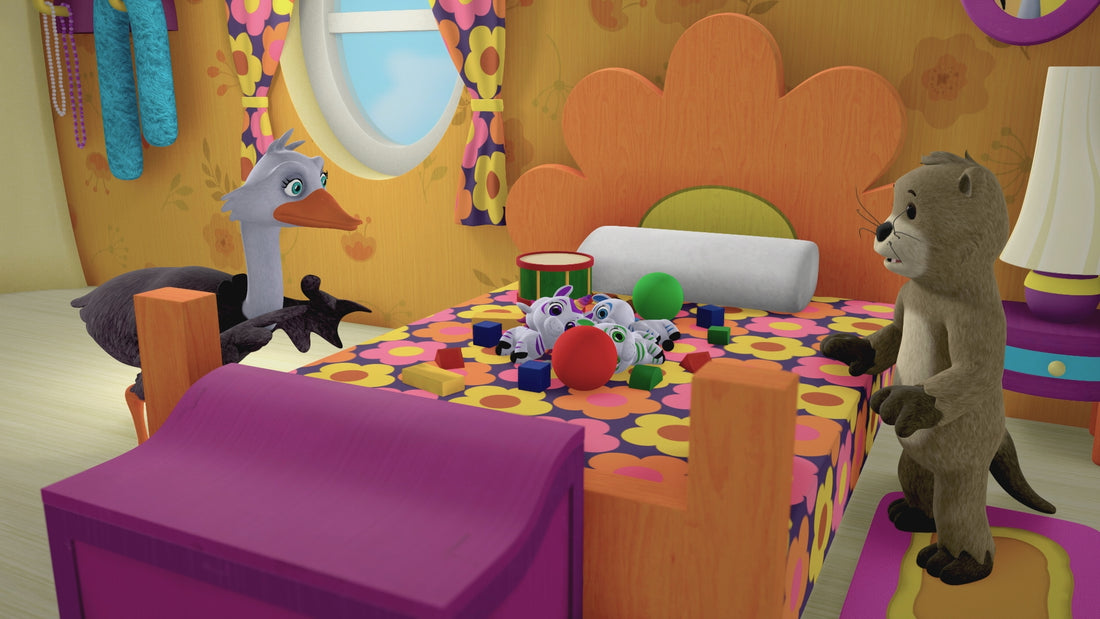Written by Natascha Crandall, PhD. - Educational Curriculum Consultant

Effective communication is a fundamental social skill and a crucial developmental milestone for young children. But, as you may have noticed when watching how our Zoonicorn characters relate to each other, communication is so much more than just talking! As children develop, they begin to discover the importance and power of reciprocal communications. Reciprocity means taking the time to listen and consider the other person's opinions and desires and negotiating to make things work for everyone. As young children develop, they learn to recognize that communication is more than just taking turns talking- it involves using information from the other person and responding to their thoughts and feelings.
Children pick up cues from their parents regarding how they talk with others and how differences are resolved. It is important to teach young children these nuances through modeling. We need to show our children that when communicating, everyone gets a turn to talk and express their opinions. Show your child how to communicate effectively, even when the questions are hard. Make yourself an active listener. Let them voice their opinion or side of the story and ask questions to ensure you understand their viewpoint.
The ability to participate in reciprocal relationships helps young children develop a sense of self and of self-esteem. Children thrive when they are valued and appreciated for their communication – and especially when they know they are being heard.
Besides talking and listening, there also is a third aspect of communication. As infants, children begin to decode body language. They notice facial expressions and are aware if someone is frightened or sad or angry even before they are able to process the words. By the time they reach preschool, they typically have discovered the importance of gestures and facial expressions and use frowns, smiles and looks of surprise on their own when storytelling, playing and even when talking to others.
As your preschooler’s ability to use and understand language develops, you’ll start to have longer and more animated conversations. These conversations give you the chance to really listen and react to your child’s thoughts and feelings. When you do this, it sends the message that what your child is thinking and saying is important to you. Just as we appreciate when someone really hears and understands us, they do too. And this is great for your relationship with your child!
Many of our Zoonicorn stories place an emphasis on this sort of two-way communication. Our characters talk, but they also listen to each other. Generally, they communicate, they take turns speaking, they focus on what the other is saying, but when they don’t and we see the problems and chaos that occurs! By illustrating when they listen to each other, and value what others are saying, our Zoonicorn characters build and maintain strong relationships with one another. This is one of the building blocks that work towards promoting optimism and resilience, which are our core values in Zoonicorn.

